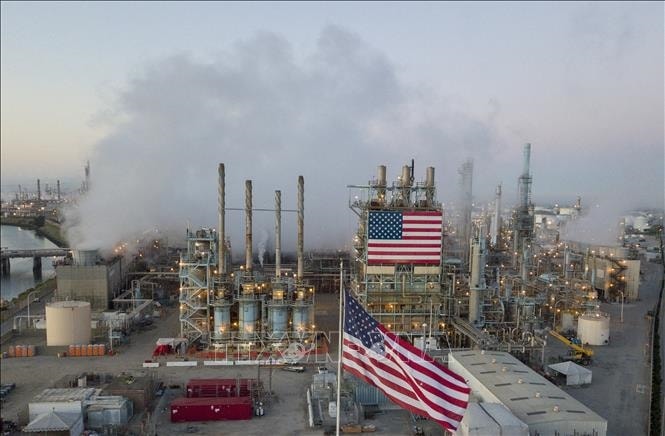The United States and the European Union (EU) on April 4 pledged to fight against acts that destabilize global energy markets.

An oil refinery in Carson, California, USA. Photo: AFP/TTXVN
A joint statement after a meeting in Brussels (Belgium) between the US and the EU stated: "Both sides reaffirmed their strong commitment to directly confront, with appropriate measures, any attempts to further destabilize the global energy situation and evade sanctions."
The joint statement also stated that the two sides will strengthen cooperation to reduce dependence on Russia for nuclear fuel and uranium enrichment services, and agreed to hold a joint meeting this year to promote advanced technologies such as small modular reactors.
The US and EU have stepped up energy cooperation since Russia cut off gas shipments to Europe due to the conflict in Ukraine, plunging the continent into an energy supply crisis and sending fuel prices to record highs.
The EU is still struggling to replace most of its gas imports from Moscow, thanks to increased imports from other suppliers, a rapid shift to renewable energy, and energy efficiency policies.
In 2022, the US delivered 56 billion cubic metres of liquefied natural gas (LNG) to the EU, more than double the amount delivered in 2021 and making Europe the top destination for US LNG.
The EU does not sanction imports of gas or nuclear fuel from Russia, on which the 27 member states are heavily dependent. According to the EU nuclear agency Euratom, Russia supplied 20% of the uranium for EU nuclear power plants in 2021, and 31% of the uranium enrichment services for these plants.
Also in 2021, the US imported 35% of its uranium from Kazakhstan, 15% from Canada, 14% from Australia and 14% from Russia.
According to VNA